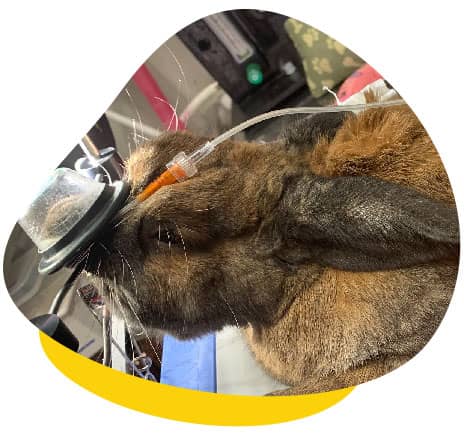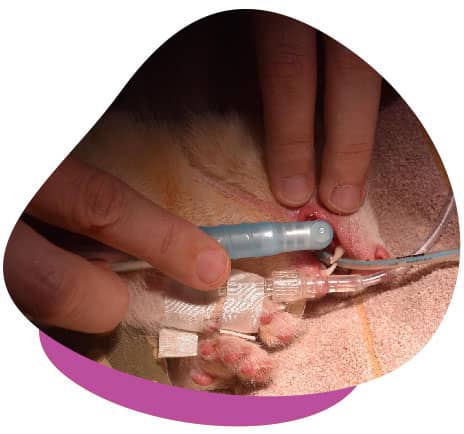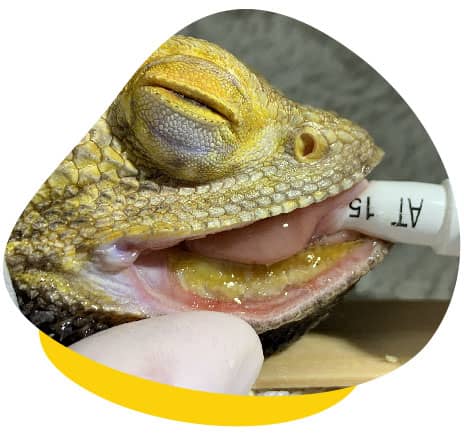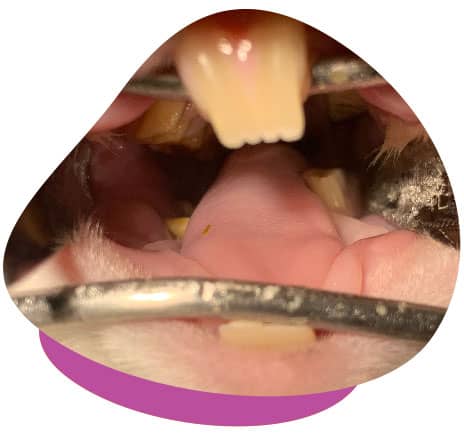Correction or Removal of Incisor Teeth in Rabbits
Malocclusion of the front incisor teeth is usually a result of problems with the cheek teeth, or the rabbit being born with abnormal jaw alignment, which leads to problems with the way the teeth oppose each other.
If there are only mild changes in the shape and curvature of the incisors, then correction as well as solving the primary cheek teeth problem (if present) may be all that is needed. Once the incisors are not meeting, they are not helping the animal and as they can grow quickly, they often require trimming every 3-4 weeks. Often once this occurs, it is best to remove them as this offers a more permanent solution.
Removal of Tooth Root Abscesses
Tooth root abscesses are often seen as firm lumps on the lower or upper jaw. Treatment generally requires the removal of the bony abscess and the tooth. Depending on the tooth involved, this often requires a surgical approach with a drainage hole left to allow for the flushing of the abscess. Injectable antibiotics and regular revisits are often required postoperatively.
It is important to note that depending on the severity of the dental problems your exotic pet displays, intervention may need to be ongoing and lifelong. For some patients this means regularly dental corrections anywhere from every 4 weeks to every 12 months. This can often be predicted with radiographs or a CT scan, but sometimes only time will tell.





